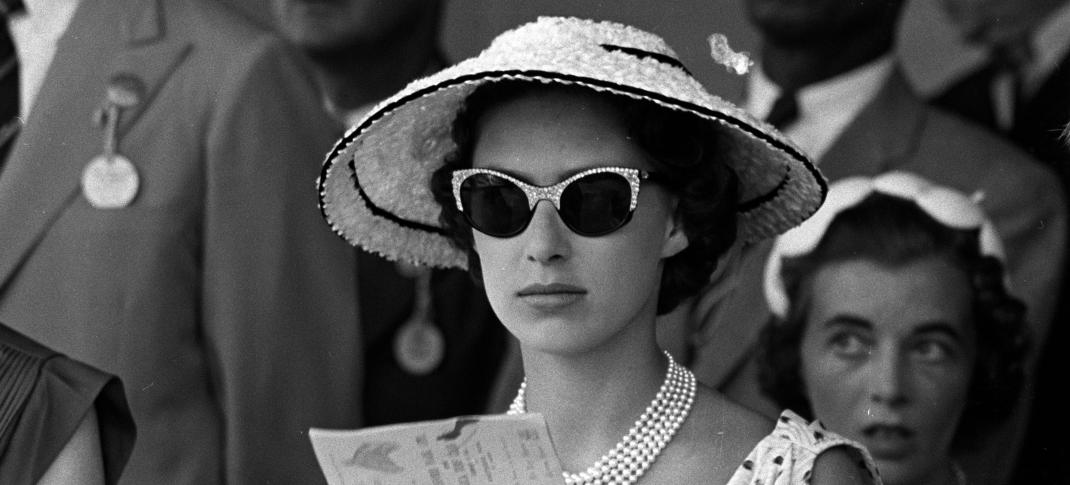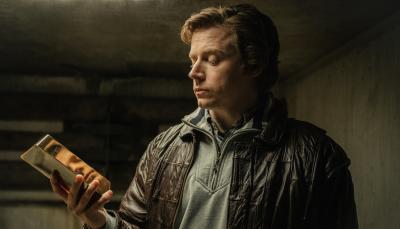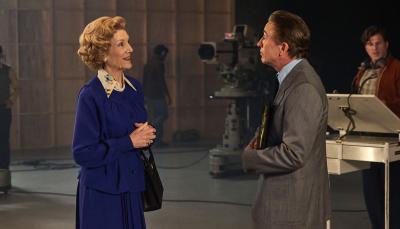'Margaret: The Rebel Princess' Review

Jamaica, 1955, Princess Margaret is pictured at the races at Kingston during the Royal Tour of the Caribbean (Photo by Popperfoto/Getty Images)
This content is subject to copyright.
PBS' newest special Margaret: The Rebel Princess is a biography diving into the life of the younger sister of Queen Elizabeth II.
You know a show is peaking in popularity when it is used as a lead-in for other related programming viewed as needing a leg up. Downton Abbey held this spot for years on the PBS calendar, and now Victoria is following suit. Victoria & Albert: The Wedding aired after the first two episodes of Season 3, a series that at least had the benefit of being a thematic pairing. PBS' second roayl history-focused two-parter which air on consecutive Sundays starting this weekend, is a little more modern. The subject this time is the late Princess Margaret Rose, Countess of Snowdon who passed away in 2002.
It is unfortunate for PBS that Netflix had to delay The Crown Season 3 which, had it followed the same release schedule as Season 2, would currently be driving peak interest around its subjects, such as Margaret and her disastrous marriage. But Victoria at least has the Princess Feodora plotline this season (such as it is), focusing on the bond between the Queen of England and a sister who would never be equal. Margaret's tale is merely the modern version of the same relationship, particularly how one survives growing up inside the PR machinery of The Palace (much of which was created during Victoria's reign) when one will never be the principal subject.
Victoria & Albert had a whimsical attitude towards the subject at hand, providing historical facts as the audience ohs and ahhs over period artifacts and dress recreations. In contrast, Margaret: The Rebel Princess gives viewers a more traditional talking head interview style set up. It sits down with such knowledgable figures as Princess Margaret's authorized biographer Christopher Warwick and the Queen Mother's biographer, Hugo Vickers, as well as friends, distant cousins, and various hangers-on.
But perhaps one of it's best offerings the program holds is Margaret herself. Unlike anything from the 1800s, there are actual recordings of interviews with the princess, of which the program makes liberal use. Thus, it can use her own words to shape the strange dichotomy of her character. One moment, she's talking about how overwhelming it is to travel through the crowds as a child when her father was coronated, and the next, she's insisting that Buckingham Palace is "a very cozy house," utterly oblivious to how strange and out of touch such a statement will sound to 99% of the population.
This sort of unconscious sense of privilege becomes one of Margaret's defining characteristics as the interviews go along, chronicling her adult years. But though she clearly enjoyed the life of spoiled royalty on one level, there's also a self-conscious streak because she isn't the Queen, and an almost pathological need to remind everyone of who her father is, and what her place in the world entails. But even as she seemed to fear the loss of her privileges, she also chafed against the cage they put her in.

In the same way Victoria's first season was given more depth and interest by the background filled in by Victoria & Albert: The Wedding, a repeat viewing of The Crown's second season would not be remiss after watching this special, as it really puts in context what a big deal Margaret's marrying a photographer was.
The Crown, of course, makes her decision more about her relationship and jealousy of Elizabeth, and the queen's fear of upsetting Margaret by saying no to her again. But hearing it in the historical context of how other younger siblings would never have been allowed to marry this sort of match, and certainly not in such a public way, really puts into perspective the step towards modernizing the monarchy Margaret created by merely insisting she be allowed to exist and live her life as she demanded.
Even if, in the end, her own need to be treated as royalty undermined her crusade for selfhood, and, try as she might, she never managed to force the stifling world around her into the radical change it needed to keep up with the times, Margaret's place in history is an important one. As terrible as the marriage was, Elizabeth's loosening the rules for Margaret paved the way both for William and for Harry to push the monarchy forward with their own choice of spouses, and helped create the more modern Royal Family we know today.
Margaret: The Rebel Princess Part One airs on Sunday, February 10, at 10 p.m. ET, with Part Two to follow on Sunday, February 17. As always, check your local listings.



